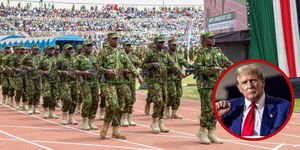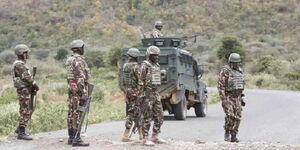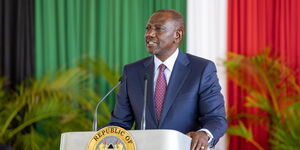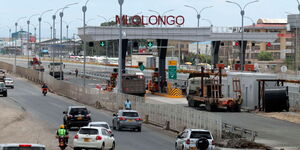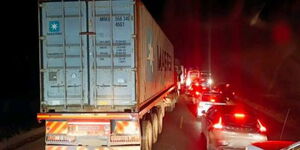The fuel crisis in the country could have been worse if matatus were severely affected by the shortage. This would directly affect thousands of commuters who rely on public transport daily.
A spot check on photos shared widely on social media platforms depicting the magnitude of the crisis showed very few matatus lining up for fuel, with the majority of stuck motorists being owners and drivers of personal cars.
Branden Marshall, a traffic coordinator and member of the Association of Matatu Operators, spoke to Kenyans.co.ke and explained how matatus managed to evade the crisis and ensure sufficient supply of fuel at all times.
Marshall explained that matatus were not affected simply because they mostly rely on diesel which was available in most of the filling stations. He stated that since the reserves for diesel were in supply, the matatus were not affected.
He further pointed out that matatus give good business to fuel stations so they have a good rapport with them and during such a crisis, they are given first priority.
Marshall stated due to partnerships with fuel stations, the matatus - through their Saccos - have standing agreements entered with specific petrol stations that ensures they are always supplied with the commodity.
PSVs also have deals such as lipa pole pole (pay in instalments) with fuel stations and due to the huge sums that they spend monthly, they are fuelled either at night or very early in the morning.
"Matatus are a business that highly depends on fuel. With this in mind, every business person wants to make sure that his vehicle is fuelled and they don't have to keep going to the stations every few hours. We spend up to Ksh10,000 on one vehicle a day and this tells you how valuable we are to fuel stations.
"We have cut deals with them and we get certain discounts due to the good rapport that we have created over the years. But most important to note, is that many matatus use diesel and it was available unlike petrol," he stated.
Marshall also explained that with the new fuel prices, they will have to increase fares but not directly as customers are expecting. PSVs have a method to harmonise the increase without hurting the passengers' pockets during peak hours.
"Since the prices of fuel have hiked, we will also slightly increase the fare but this will not affect the peak hours. In such cases we slightly increase fares in the off-peak hours by a very small margin and leave the peak hours as they are," he added.
EPRA announced an increase in fuel prices that will take effect from midnight, Friday, April 15.
For the period between April 15 and May 14, the price of a litre of super petrol has been increased by Ksh9.90 to a pump retail price of Ksh144.62.
Diesel will retail at Ksh125.50 while Kerosene will retail at Ks113.44 per litre. Diesel and kerosene costs have also increased by the same margin of Ksh9.90 per litre.


